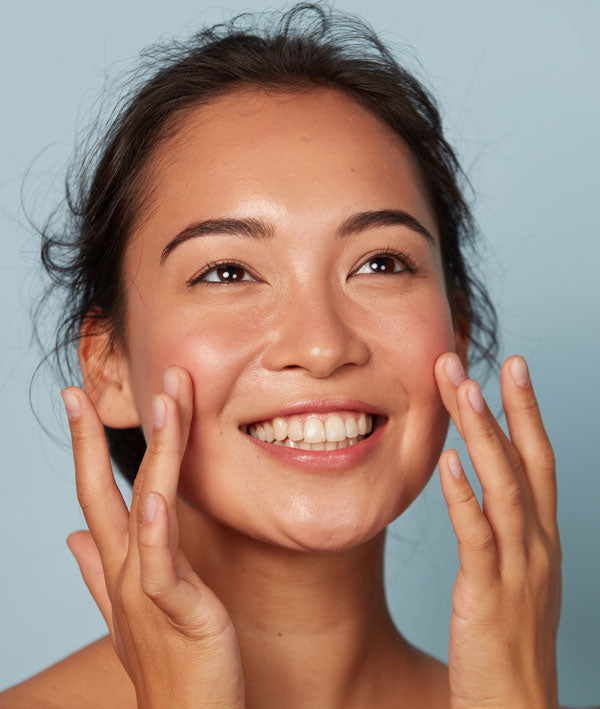To the untrained eye, eczema and psoriasis may look the same – but there are some major differences between the two conditions. Here is how they differ, as well as the best treatments for keeping these conditions in check.
What is Eczema?
Eczema is an inflammatory condition that causes dysfunction in the skin’s barrier. While there are multiple types of eczema, in general, it can be characterized by rashes, dryness, redness, rough patches of skin, and itchiness. The condition can affect people of all ages, but most often appears in babies and children.
Symptoms of eczema can vary in severity, and flare ups may stick around anywhere from a couple days to several weeks. While there isn’t a cure, targeted treatments will help manage symptoms.
What is Psoriasis?
Psoriasis shares some of the same symptoms of eczema, including rashes, itchiness, and redness. However, psoriasis is also characterized by scaly, raised patches of the skin, which are referred to as psoriasis plaques. The condition most often occurs in people in their teens and adulthood.
Psoriasis flare ups can last weeks or even months. Otherwise, symptoms may be dormant for months or years. Just like with eczema, there isn’t a cure, but treatments can help reduce symptoms.
Genetics vs Environment vs Autoimmune
Eczema and psoriasis have different underlying causes. Psoriasis is an autoimmune disease that causes inflammation in the skin. With this condition, an overactive immune system speeds up the growth of new skin cells, which pile up on the skin.
There is also a genetic component to the condition. If you have a family history of psoriasis, your risk of having the disease increases. Psoriasis may also be worsened by environmental factors like dry weather, infections, certain medications, and stress.
On the other hand, both genetics and environmental factors play a role in eczema. However, this condition is not an autoimmune disease.
Triggers like scented detergents or body care products, dryness, irritating fabrics, and pollutants can cause eczema symptoms. Stress may also cause flare ups. Those that have a history of allergies and asthma tend to be at a higher risk of developing the condition.
Differences in Itchiness
While itchiness can be a symptom of both conditions, there is a difference in severity. In some cases, eczema can cause more intense itchiness in the skin. For some people, the sensation can be so severe that they accidentally scratch themselves. On the other hand, itching related to psoriasis typically isn’t as intense. That said, the condition can cause the skin to burn or sting.
Physical Appearance
At first look, eczema and psoriasis symptoms can physically look the same – but there are some key differences.
In both cases, the skin generally looks red and inflamed. They can also both be characterized by dry rough patches. However, with psoriasis, the scaling of the skin is much more intense. The plaques on the skin can become so thick to the point that they are raised.
With both eczema and psoriasis, symptoms can show up anywhere on the body and face. With eczema, visible signs of the condition typically appear around the elbows (particularly the inner elbows), hands and wrists, knees (particularly behind the knees), neck, ears, and face (especially on the cheeks). With psoriasis, people tend to experience symptoms around the elbows, knees, scalp, lower back, palms, soles of their feet, lips, and eyelids.
Can Sunshine Help Psoriasis or Eczema?
Exposure to the sun can help ease psoriasis symptoms. In fact, many with the condition find that their symptoms are mild (or even non-existent) in the summer. UVB rays from the sun slow down the growth of skin cells. This helps counteract skin cell overproduction associated with psoriasis, and in turn lessens skin plaques. It’s still important to wear sunscreen and limit the time you expose your skin to the sun to reduce the risk of damage.
The sun’s benefits for eczema symptoms is a bit more complicated. Some evidence suggests moderate exposure may help reduce symptoms. However, for some people, heat and sweat actuallytrigger flare-ups. Ultimately, this means how the sun affects eczema-prone skin will differ from person to person.
Best Treatment Options
A dermatologist can help you properly diagnose your condition and develop a treatment plan for your specific needs. Symptoms of both conditions can be managed with topical products like steroid creams and fragrance-free moisturizers made for dry and sensitive skin. In some cases, oral medications that get to the root cause may also be prescribed.
Serums that support barrier health, hydrate, and fight inflammation can also be beneficial for managing both conditions. For example, a topical CoQ10 serum may help reduce many of the symptoms associated with eczema.
With both psoriasis and eczema, it’s important to identify what causes a reaction in your skin, and do what you can to avoid those triggers. Paired with a tried-and-true treatment routine for when symptoms do arise, this is the best way to manage the conditions and keep your skin as calm and healthy as possible.






